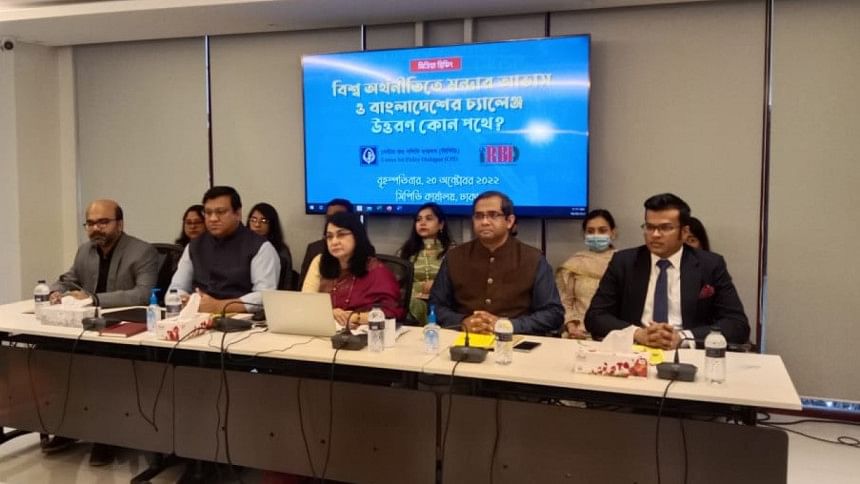Rising living cost could drive many into poverty: CPD

Many households in Bangladesh are at risk of falling into poverty due to soaring food and non-food prices, warned the Centre for Policy Dialogue (CPD) yesterday.
The caution comes as inflation reached 9.52 per cent, a 10-year high, in August before coming down slightly to 9.1 per cent in September, compounding the hardship for the low-income families, who were trying to recover from pandemic induced income losses.
Since the outbreak of Covid-19 in early 2020, the poor and low-income group has been facing challenges as the cost of living has climbed.
But their struggle has become harder as higher commodity prices, exacerbated by the Ukraine-Russia war and several domestic factors such as the hike in the prices of petroleum, an expensive dollar, and the market distortion by a few dominating businesses, continue to persist.
As a result, the average monthly cost of a basket of 19 common food items increased from Tk 17,530 on January 1 of 2019 to Tk 22,421 on October 16 this year for a household of four persons in Dhaka city, the CPD said in its review on challenges faced by Bangladesh amid the slowdown in the global economy.
The think tank shared its observation at a press briefing at its office.
It said the cost rose to Tk 9,059 from Tk 6,541 if the household accepts a compromised diet with no fish, mutton, beef, or chicken on their plates.
Food prices rose to 9.94 per cent in August before decelerating to 9.13 per cent in September, according to the Bangladesh Bureau of Statistics.
"As the burden of rising prices weighs heavily on their meagre incomes, these households continue to struggle," said CPD Executive Director Fahmida Khatun.
"Apart from the high price of basic food items, the escalated price of non-food items is putting a huge burden on households."
Non-food inflation rose to 91.3 per cent in September.
"So, maintaining even a modest standard of living is becoming prohibitively expensive for households in Dhaka," the CPD said, adding that out-of-pocket expenditure on healthcare for a household also increased in the absence of support from the government.
The CPD thinks the existing minimum wage for workers in all industries would not be sufficient for affording a regular diet for a family of four even if it is assumed that workers got a 5 per cent annual increment of their basic wages.
Bangladesh maintains a poverty rate of 20.5 per cent estimated in December 2019 and the government has not published any poverty data assessing the impact on the poor although non-government studies found a spike in the number of poor people.
Citing a Food and Agriculture Organisation report, the CPD said seven million people, mostly residing in rural areas, in nine districts in Bangladesh's northeast, were badly impacted by two waves of disastrous flash floods in May and June.
Nearly 93 per cent of the impacted people were compelled to adopt at least one negative coping technique such as missing meals, succumbing to debt, and depleting productive assets as a consequence of the abrupt loss of livelihoods and supplies of food, it said.
It said inflation could have been contained better had the government removed import tariff and taxes on 29 essential food items that currently face a high tax incidence.
"Thus, a fiscal policy which is highly dependent on indirect taxes propagates economic inequality in society and forces the government to trade off revenue generation in the face of high inflation," said the CPD.
"The import tax and duties should reduce."
The CPD found that several necessities, whether they are produced locally or imported from a more developed country, are more costly in Bangladesh than in other developing or developed nations.
For example, it said, the price of a piece of bread weighing 500 grammes is higher in Dhaka than in Sri Lanka, Pakistan, India and Nepal.
"The current inflation figure is not painting the real scenario of people's plight," said Fahmida.
Towfiqul Islam Khan, a senior research fellow of the CPD, said Bangladesh could have been in a better position if the government had undertaken reforms.
"As the reforms did not take place, the tax-to-GDP ratio is still low in the country."
"If the ratio goes up, the fiscal space of the government will widen. Then, the government will be able to support the poor."

 For all latest news, follow The Daily Star's Google News channel.
For all latest news, follow The Daily Star's Google News channel. 



Comments